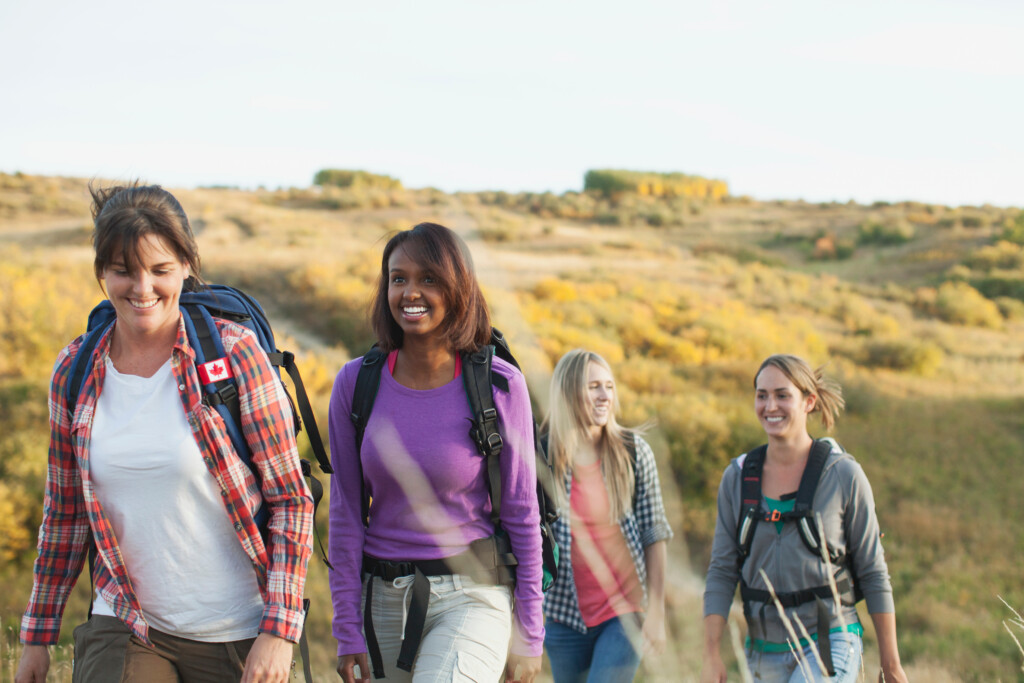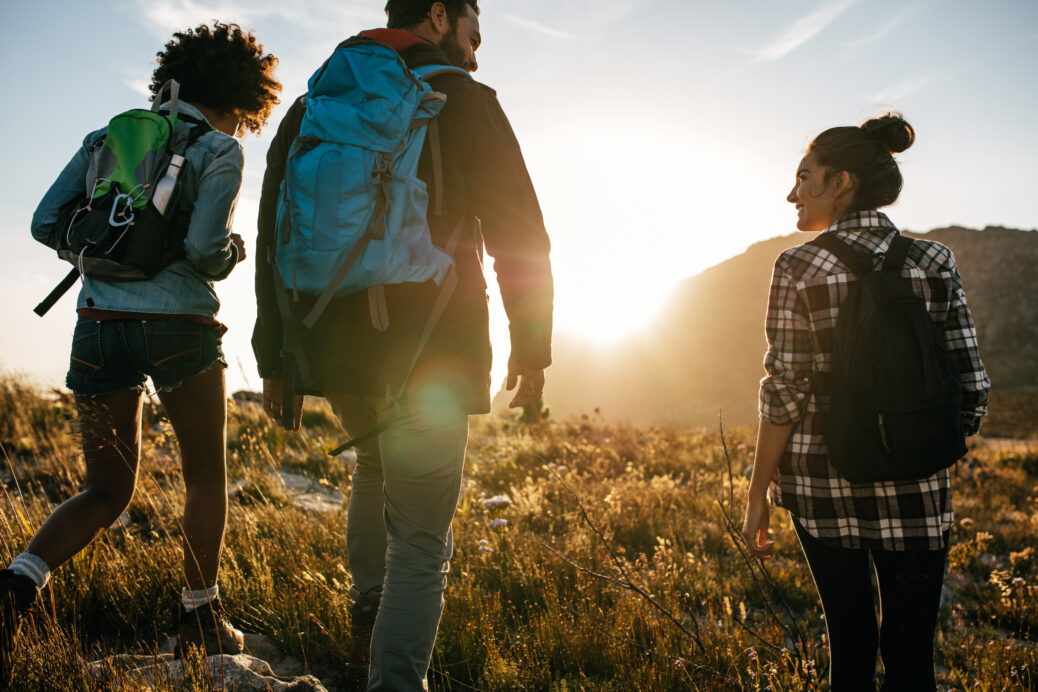Nature’s Prescription: The Benefits & Challenges of Outdoor Recreation
There are numerous physical and mental health benefits of the outdoors. Studies show spending time in nature can provide immediate benefits, such as decreased blood pressure, decreased stress levels, enhanced immune system functioning, and restored attention.
There are also benefits that happen over time, such as weight loss, decreased depression, and overall wellness1. The same study suggested that doctors should prescribe hiking as treatment. Unfortunately, not everyone has equal access to outdoor activities, particularly women and people of color. However, there are things you can do to help feel safer when participating in these activities.
Mental Health Benefits Of Outdoor Recreation
Research shows that spending time in nature offers many benefits for mental health. One study found that when compared with exercising indoors, exercising in natural environments was associated with decreases in tension, confusion, anger, depression and increased energy and positive engagement2. Here are other benefits to outdoor recreation:
- Physical Activity. Exercise releases endorphins, the body’s natural feel good chemicals. Endorphins help to reduce stress and anxiety, improve self esteem, and improve cognitive function.
- Natural Light. Light is often used as an effective treatment for depression. For example, those with seasonal affective disorder (SAD) frequently use UV Light Boxes in their home. Exposure to natural light can help regulate circadian rhythms, leading to better sleep quality and more stable moods.
- Social Connection. You can connect with people with similar interests by participating in group activities. This can provide a sense of belonging and support.
- Sense of Accomplishment. Outdoor activities often involve goal-setting, planning, problem-solving, and challenging your physical limits. After going through all that, reaching the end of a trail or the summit of a mountain is a great achievement.
- Perspective. Surrounding yourself with the beauty and complexity of nature helps you gain perspective. It can lead to feelings of gratitude and awe, which disrupt negative thought patterns associated with depression.
Gentrification of Wilderness Activities

Despite the numerous health and physical health benefits, there is a growing concern over the accessibility of outdoor recreation for lower-income individuals, people of color, and women.
One of the major barriers to access for outdoor activities is cost. Equipment for hiking, camping, and kayaking can run anywhere from $200 to $5,000. This discourages participation from people who cannot invest in such expensive gear. However, gear libraries and increased access to rental equipment have helped with this barrier.
Another barrier for access is representation. Most people do not see themselves reflected in the outdoor recreation community. Historically, outdoor recreation has been dominated by white, male, affluent individuals. People of color have experienced discomfort and feelings of exclusion in these spaces.
Women may face safety concerns when participating in outdoor activities. Especially when hiking or camping alone. Women are more likely to communicate their whereabouts and plans compared to men. Women are also more likely to carry weapons and protective gear with them.
Feeling Safer In Outdoor Recreation
While there are many barriers to participating in outdoor activities, there are also steps that women and people of color can take to feel safer when participating in wilderness activities:
- Find women-only, minority specific programs. Use social media to find communities of women or minorities that are banding together to enter outdoor spaces. Various groups have created inclusive communities to help bridge the diversity gap: Black Girls Hike, Outdoorsy Black Women, Black Packers, Color the Trails, and Vibe Tribe Adventures.
- Inform a friend (or bring them with you). Develop a plan and tell someone where you’re going, how long you’ll be, and when they can expect to hear back from you.
- Research & Prepare. Research the area beforehand. Look up common dangers and threats on the trail, landmarks to look out for, weather and related terrain changes, etc. Also make sure you are well prepared for your hike. Some people opt to take an outdoor skills class to feel prepared for any event.
- Stick to well-traveled, well-lit areas. Utilize navigation tools to assist you and develop a good plan on which routes you’ll be using. AllTrails is an app and resource that can help find and identify safer trails for various skill levels and needs, such as wheelchair friendly trails or more populated trails.
- Bring personal protection. Based on individual comfort levels and safety concerns, you may opt to bring personal protection on your adventure. There may be a higher risk of encountering wildlife or other potential hazards depending on the location, season, or time of day. In some areas, it may be advisable to carry bear spray, a whistle, or a personal alarm as means of protection.
Conclusion
Spending time in nature has numerous physical mental health benefits. Studies show spending time in nature can provide immediate benefits, such as decreased blood pressure, decreased stress levels, enhanced immune system functioning, and restored attention. There are also benefits that happen over time, such as weight loss, decreased depression, and overall wellness1. The same study suggested that doctors should prescribe hiking as treatment. Unfortunately, not everyone has equal access to outdoor activities, particularly women and people of color. However, there are things you can do to help feel safer when participating in these activities.
References
- Mitten D, Overholt JR, Haynes FI, D’Amore CC, Ady JC. Hiking: A Low-Cost, Accessible Intervention to Promote Health Benefits. Am J Lifestyle Med. 2016 Jul 9;12(4):302-310. doi: 10.1177/1559827616658229. PMID: 32063815; PMCID: PMC6993091.
- Thompson Coon J, Boddy K, Stein K, Whear R, Barton J, Depledge MH. Does participating in physical activity in outdoor natural environments have a greater effect on physical and mental wellbeing than physical activity indoors? A systematic review. Environ Sci Technol. 2011 Mar 1;45(5):1761-72. doi: 10.1021/es102947t. Epub 2011 Feb 3. PMID: 21291246.
If you enjoyed this article, please consider joining our community!


